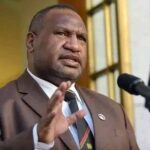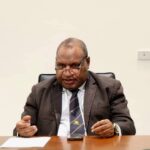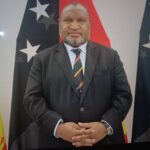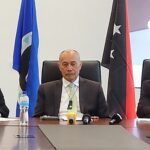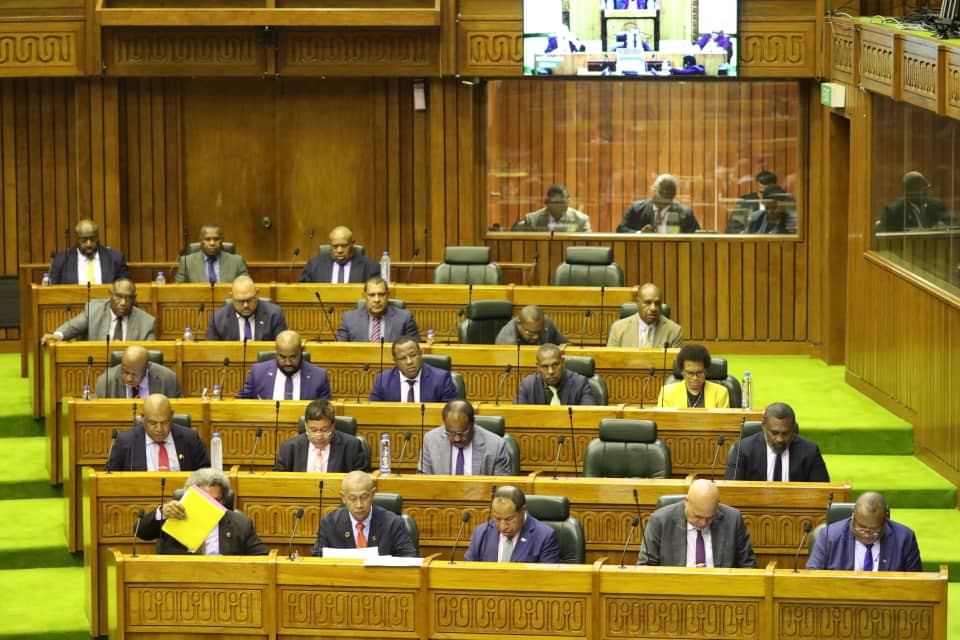Papua New Guinea has received a significant vote of confidence from the international community following a high-level economic briefing that brought together the Government, key international financial institutions, and development partners in Port Moresby on Monday.
The event, chaired by Prime Minister Hon. James Marape, provided a detailed overview of Papua New Guinea’s current economic trajectory and the reform efforts under the Government’s home-grown agenda. It included presentations from the International Monetary Fund (IMF), World Bank, Asian Development Bank (ADB), Bank of Papua New Guinea (BPNG), and the Departments of Treasury, Finance, and National Planning.
The central message was overwhelmingly positive: Papua New Guinea is on the right path. Delivering a comprehensive economic overview, IMF Resident Representative Mr Sohrab
Rafiq offered a candid, data-driven analysis of the country’s recent economic struggles—largely driven by years of foreign exchange shortages and an overvalued exchange rate— and the remarkable turnaround now underway.
“To be completely honest, Papua New Guinea has endured some of the most difficult macroeconomic conditions in the Asia-Pacific region over the last decade,” said Rafiq. “But I say this with confidence: PNG is now the best-performing country in our region under an IMF programme.”
He noted that PNG’s economy had become “billions of dollars smaller than it should have been” due to constrained private sector investment and sluggish productivity. However, since the launch of the IMF-supported programme in 2023, the economy is showing measurable improvements across all major indicators.
Key Achievements Under the Reform Programme
1. Inflation Under Control
Inflation, once a major concern, has stabilised around 5%—below the historical average. This is despite global pressures from rising food and fuel prices. Contrary to popular belief, the gradual adjustment of the kina has not triggered runaway inflation, but instead has restored price stability.
“It’s not the exchange rate adjustment that’s driving the cost of living,” Rafiq clarified. “Global factors such as rising cereal and rice prices are responsible. PNG’s inflation performance has in fact been stronger than most countries in the Asia-Pacific.”
2. Prudent Fiscal Management
The fiscal deficit has been steadily declining since the post-COVID peak, with strong projections that the budget will return to balance by 2027. Debt-to-GDP ratio, which had climbed during years of fiscal stress, is now set to fall for the first time in over a decade.
“Let me be clear—PNG’s debt level is not excessive by regional standards,” Rafiq stressed. “In fact, the country sits at the lower end compared to many of its neighbours. The way in which the Government is managing its fiscal consolidation—gradually and responsibly—is a model for others.”
3. Foreign Exchange Backlog Slashed
One of the most profound improvements has been in the foreign exchange (FX) market. Just five years ago, the FX backlog was over USD 400 million. Today, it is under USD 150 million, with many essential import orders now being cleared on demand.
“We are seeing a return to kina convertibility,” said Rafiq. “This means that businesses and individuals can access foreign exchange when they need it. FX market liquidity has improved, and the kina is now approaching a more realistic, competitive value.”
4. Rising Global Investor Confidence
One of the most compelling signs of PNG’s reform success is its improved reputation in international capital markets. The country’s risk premium—how much extra it pays to borrow compared to developed countries—has fallen from 8% to around 4.5%.
“This is a massive shift,” said Rafiq. “In simple terms, Papua New Guinea has regained access to international capital markets. Global investors now believe in this country’s reform path.”
The IMF further noted that if reforms continue and the euro bond due in 2028 is managed wisely, PNG’s international credit rating could improve, lowering borrowing costs and unlocking further investment.
IMF Programme: PNG-Led, IMF-Supported
Rafiq was keen to stress that the IMF programme is not imposed from outside but is driven by the Marape Government’s own agenda. The IMF’s role is to support through technical advice and low-interest concessional financing.
“We often call it an IMF programme, but the truth is—it’s your programme. The credit belongs to you,” he said. “Papua New Guinea’s reforms are home-grown, and we are here only to assist.”
PM Marape: “We Are Doing the Right Thing for Our People”
In his remarks, Prime Minister Marape reaffirmed that his government is focused on building a resilient, inclusive economy that creates opportunities for all Papua New Guineans—not just large corporates or the public service.
“We’re not here because there is a crisis. We’re here because we want to avoid one,” said Prime Minister Marape. “We are building strong foundations. I want our people to take part, especially our young entrepreneurs and SMEs. If one young man can earn over K100,000 a week exporting coffee so can others.”


